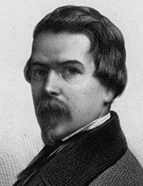

In these cities, he carried out research in order to find the sources of their respective foundations. He found some documents but was disappointed by the terrible state of preservation they were in. The trip, however, had not been in vain but rather "of great advantage", as the "personal knowledge" he had acquired of "these two localities, the nuclei of two of our early captaincies", would enhance his ability to write history: "I will be better equipped to describe it for the future." This is not merely a compensation for the absence of accessible or reliable documents but a cognitive tool: in other words, vision emerges not as a fallback option but as an instrument of knowledge; thus, not as an alternative methodology but as the epistemological foundation of research. In other words, he doesn't search for traces of the past in the present in an instantaneous and unreflective way; the autopsy, the methodology of the ancients, in which the eye functions, according to François Hartog, as a "mark of enunciation, of an I saw as an intervention by the narrator in his narrative to prove it" ( Le miroir d’Hérodote... [The Mirror of Herodotus...], p. 272). What he says, is not an immediate fact of consciousness for Varnhagen, but an intellectual labour that requires prior knowledge and a constant exchange between the past and the present. His intention was that one day "after completing our Historia da Independência [History of Independence]," to publish the diary of this trip—during which he believed he had found the precise location of Cabral's landing and the place where the first mass was held. The travelling historian didn't have time to write it down. The hardships of the journey led to him falling gravely ill. On 29 June 1878, at the age of 62, the Viscount of Porto Seguro died in Vienna, as far away as ever from his homeland. His will states that a monument to his memory should be erected on the site of his birth. Four years after his passing, on the grounds of the Real Fabrica de Ferro de São João de Ipanema [The Royal Iron Factory of São João de Ipanema], his wish was granted. One side of the pedestal bears the following inscription: “To the memory of Varnhagen, Viscount of Porto Seguro, born in the fertile land discovered by Columbus, guided by his father into great and useful pursuits. He shook his homeland and wrote its history. His immortal soul gathers all his memories here." It is not known who wrote this epithet. It could have been a friend, an admirer, someone from the family, or even Varnhagen himself. Be that as it may, the historian's request should not be regarded merely as an egocentric reflection but rather as a potentially precautionary measure.
This work is financed by national funds through FCT - Foundation for Science and Technology, I.P, in the scope of the projects UIDB/04311/2020 and UIDP/04311/2020.
